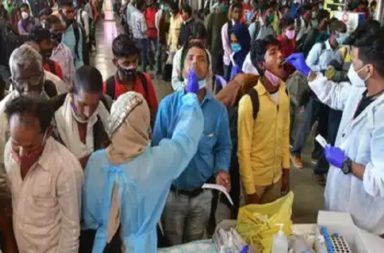The coronavirus has now spread deep into the interiors of the country and has affected the dwindling Great Andamanese tribe in the Andaman and Nicobar Islands. The Great Andamanese tribe, whose population is just over 50 in the Union Territory, has been struck by COVID-19, with 10 of its members testing positive for the virus.
Health authorities have sent a team to Strait Island after six members of the tribe contracted the virus in Port Blair recently. The government itself is constantly monitoring the health of all the tribes living on all the islands. After four people of this rare tribe got corona infected, two people have been kept in the hospital and two in the COVID-19 care center. Now, the biggest worry will be about the vulnerable tribes like Jarawas, North Sentinelese and Shompen. The first two tribes, Jarawas and the North Sentinelese, still lead a secluded life, and outsiders are forbidden from the island.
The Great Andamanese are one of the six tribes of Mongoloid and African origin, who have lived in the Andamans in the Bay of Bengal for thousands of years. Only about 50 members survived after thousands were killed by British colonists in the 19th century or died later due to diseases. Apart from this, 470 Jarawa tribe people are living on these islands, who are living their lives in a forest reserve in Central and South Andaman. The most worrying thing in this is that these tribes have been classified as extinct by the government. If the COVID-19 pandemic is not prevented from spreading among these tribes, these tribes will be completely destroyed.
Dr Avijit Roy, who is leading the fight against the outbreak of COVID-19 in the islands, said they had run tests on the Great Andamanese living on one of the coral-reef islands in the archipelago and four of the men had turned out to be positive. “They have been moved to the hospital,” he said. Officials believe the men may have travelled to the main Andaman Islands and caught the disease. Outsiders are banned from visiting the island, to protect the Sentinelese way of life and avoid exposing them to infectious diseases.





